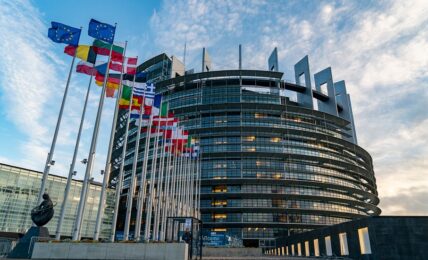New York Attorney General Letitia James announced the launch of a new lawsuit against JBS USA, the U.S. subsidiary of Brazil-based protein giant JBS Foods, the largest global producer of beef and poultry, alleging that the company has made a series of misleading statements about its environmental impact, including its claim that it will achieve net zero greenhouse gas emissions by 2040.
According to a statement announcing the lawsuit from the AG’s office, the suit aims to stop the company from continuing to the “false and misleading marketing practices,” and to pay back the resulting “ill-gotten profits” in addition to penalties.
Agriculture has emerged as a major focus area for climate action, as the sector accounts for a significant proportion of global greenhouse gas (GHG) emissions, and among the most difficult areas to address climate impact. According to the UN’s Food and Agriculture Organization, total emissions from global livestock represent 14.5% of all anthropogenic GHG emissions. The livestock sector faces several other environmental challenges, ranging from deforestation to land and water use, in addition other sustainability issues such as ethical treatment of animals.
JBS announced its goal to achieve net zero by 2040 in 2021, and has committed to set near-term company-wide emission reductions with the Science Based Targets initiative (SBTi). The company has outlined several aspects of its net zero strategy, including plans to reduce its global Scope 1 and 2 emissions by at least 30% by 2030, invest over $1 billion in incremental capex in emissions reduction projects, eliminate illegal deforestation from its Brazilian cattle supply chain, and convert its global facilities to 100% renewable energy by 2040.
In its statement, however, the New York AG called JBS’ climate and deforestation claims “misleading,” noting that the claims followed comments by a company executive in 2015 who said that “it was important for beef producers to convey to consumers that they were lowering their environmental impact to maintain their share of the food market,” and that the company has been warned by the BBB National Programs’ National Advertising Division (NAD) to stop using net zero claims in its advertising after it determined that the company’s evidence did not support the claims.
Specific statements made by the company that were highlighted by the AG included:
“Agriculture can be part of the climate solution. Bacon, chicken wings, and steak with net zero emissions. It’s possible.”
“We will cut our own emissions by 30% in 2030 and eliminate Amazon deforestation from our supply chain within five years.”
“JBS will achieve net zero greenhouse gas emissions, reducing its direct and indirect emissions and offsetting all residual emissions.”
The company began making these claims before JBS had calculated its total emissions, according to the Attorney General, however, which said that the company “had no way of knowing whether they could successfully reduce those emissions to net zero by 2040.” The statement also said that JBS’s emissions calculations didn’t account for emissions resulting from deforestation in the Amazon, arguing that the company’s net zero plan was not feasible given the scope of its operations and its plans to grow its beef production.
The AG’s office said that it is asking the court to require JBS USA to cease its “Net Zero by 2040” advertising campaign, conduct a third-party audit of its compliance with New York’s consumer protection statutes, and pay disgorgement of all ill-gotten gains earned by misleading the public about their business practices as well as penalties of at least $5,000 per violation, with the total number of violations will be determined at trial.
James said:
“As families continue to face the daily impacts of the climate crisis, they are willing to spend more of their hard-earned money on products from brands that are better for the environment. When companies falsely advertise their commitment to sustainability, they are misleading consumers and endangering our planet. JBS USA’s greenwashing exploits the pocketbooks of everyday Americans and the promise of a healthy planet for future generations. My office will always ensure that companies do not abuse the environment and the trust of hardworking consumers for profit.”



